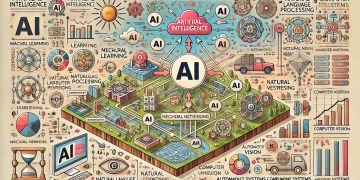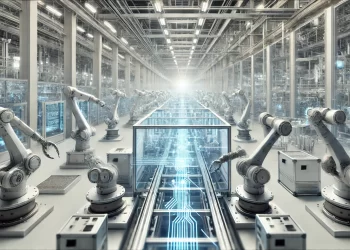Artificial Intelligence (AI) is revolutionizing the retail and e-commerce industry by enhancing customer experiences, optimizing supply chains, and automating business processes. AI-powered solutions improve personalization, fraud detection, inventory management, and demand forecasting. This article explores various AI use cases in retail and e-commerce, detailing how businesses leverage AI to gain a competitive edge.
1. Personalized Shopping Experiences
AI-driven recommendation engines analyze customer behavior, preferences, and purchase history to provide personalized product suggestions. Machine learning algorithms power platforms like Amazon, Netflix, and Spotify to enhance user engagement and boost sales. Retailers use AI to create customized marketing campaigns, increasing customer retention and conversion rates.
2. AI-Powered Chatbots and Virtual Assistants
AI chatbots and virtual assistants improve customer service by providing real-time support. These AI-driven systems handle inquiries, assist in product selection, and resolve common issues. Retailers use AI chatbots on websites, mobile apps, and messaging platforms to enhance customer interactions and reduce operational costs.
3. Automated Inventory Management
AI optimizes inventory management by analyzing sales trends, demand fluctuations, and supplier data. AI-powered systems predict stock requirements, preventing overstocking or stockouts. Automated warehouse robots powered by AI streamline order fulfillment, reducing human errors and improving efficiency.
4. Fraud Detection and Security
AI enhances cybersecurity in e-commerce by detecting fraudulent activities, such as payment fraud and account takeovers. Machine learning models analyze transaction patterns and flag suspicious activities in real-time. AI-driven fraud detection systems protect customers and businesses from financial losses.
5. Smart Pricing Strategies
AI-driven dynamic pricing adjusts product prices based on demand, competitor pricing, and market conditions. Retailers use AI algorithms to maximize profits while maintaining competitive pricing. This real-time pricing strategy benefits e-commerce platforms by attracting price-sensitive customers.
6. AI-Powered Visual Search
Visual search technology enables customers to find products using images instead of text-based queries. AI-driven image recognition systems match uploaded images with relevant products, enhancing the shopping experience. Platforms like Pinterest and Google Lens leverage AI for visual search in e-commerce.
7. Voice Commerce and AI Assistants
Voice assistants like Amazon Alexa, Google Assistant, and Apple Siri enable customers to shop using voice commands. AI-driven natural language processing (NLP) enhances voice commerce, allowing users to place orders, track shipments, and receive recommendations hands-free.
8. AI in Supply Chain and Logistics
AI optimizes supply chain operations by predicting demand, reducing delays, and improving route optimization. AI-powered logistics platforms analyze real-time data to enhance delivery speed and efficiency. Retail giants like Walmart and Alibaba use AI for warehouse automation and last-mile delivery solutions.
9. Augmented Reality (AR) and AI-Powered Shopping
AI and AR technologies enhance online shopping by allowing customers to visualize products before purchasing. Virtual fitting rooms, 3D product previews, and AI-driven styling recommendations improve the customer experience and reduce return rates.
10. Sentiment Analysis for Customer Insights
AI-powered sentiment analysis tools analyze customer reviews, social media posts, and feedback to gauge brand perception. Retailers use AI to understand customer sentiment, refine marketing strategies, and improve product offerings based on real-time insights.
Conclusion
AI is transforming retail and e-commerce by enhancing customer experiences, streamlining operations, and optimizing business strategies. From personalized recommendations to AI-powered logistics, businesses leveraging AI gain a competitive advantage in the digital marketplace. As AI technology advances, its impact on retail and e-commerce will continue to expand, driving innovation and efficiency.
References
- McKinsey & Company. (2023). “AI and the Future of Retail: Emerging Trends.”
- Harvard Business Review. (2022). “How AI is Revolutionizing E-commerce.”
- Deloitte Insights. (2023). “The Role of AI in Personalized Shopping Experiences.”
- PwC. (2023). “AI in Supply Chain and Logistics Optimization.”
- Gartner. (2022). “AI-Powered Fraud Detection in Retail and E-commerce.”
- Forrester Research. (2023). “AI in Retail: Enhancing Customer Experience and Business Operations.”




































